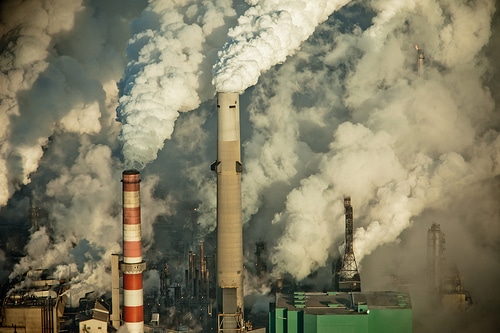Prime Minster Stephen Harper’s hopes for the approval and construction of the Keystone XL pipeline, which will transport Alberta tar sands crude across the US to refineries and export facilities in the Gulf Coast, hit a stumbling block this summer when Obama announced he will take Canada’s growing emissions problem into account when considering the project’s fate.
The tar sands, Canada’s fastest growing source of greenhouse gas emissions, have become the symbol of the country’s climate inaction, a position earning growing public censure across the globe.
Sources recently told the CBC that Harper addressed the issue in a letter he sent to Obama late August, inviting “joint action to reduce greenhouse gas emissions in the oil and gas sector,” if such efforts will help green-light the Keystone XL.
Sources told the CBC that Harper is willing to adopt Obama’s emissions targets and “work in concert with Obama to provide whatever political cover he needs to approve the project.”
Over the last year, the Keystone XL has become a rallying point for environmental organizations and climate activists internationally, as well as those hoping to scale back expansion of the tar sands.
Canada has gone into overdrive in an attempt to promote the nation’s allegedly strong environmental record, while downplaying the climate impacts of the tar sands and the country’s flagging environmental record.
Recently Natural Resources Minister Joe Oliver referred to the tar sands as a “greener alternative” than other energy sources. And Alberta Premier Alison Redford traveled to Washington DC to praise Alberta’s environmental record.
In May Stephen Harper visited the Council on Foreign Relations in New York, saying the Keystone XL and the tar sands are projects the US “can’t afford to turn down.”
“Look,” he said, ”environmental challenges, they are real, they have to be dealt with.”
“Obviously constraining the emissions there in the oil sands is going to be important,” he said, adding these emissions amount to “almost nothing globally.”
Although according to Environment Canada data, emission from the tar sands increased some 267 percent between 1990 and 2011, although per-barrel emissions have gone down a reported 26 percent. The overall increase of Canada’s expanding tar sands extraction, however, has the nation’s total emissions set to increase steadily over the next several decades.
Tar sands oil produces 3 to 4 times more emissions in the production phase than conventional oil.
The letter to Obama is an indication that Harper is willing to more openly discuss Canada’s failure to address its emission problem, but means little in terms of positive changes on the ground.
The Keystone XL, which will help move landlocked tar sands crude to market, will inevitably promote growing oil production and GHG emissions in Canada.
“The International Energy Agency says we have to leave two-thirds of the proven reserves of fossil fuels in the ground if we want to have a hope of preventing catastrophic levels of global warming, and turning down [the Keystone XL] project is a good place to start.” Keith Stewart, climate and energy campaign co-ordinator for Greenpeace.
If Obama is serious about tackling climate change, refusing the Keystone XL is a no-brainer.
* images used with permission of Kris Krug
Subscribe to our newsletter
Stay up to date with DeSmog news and alerts







